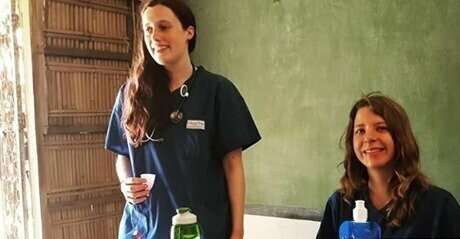GIRL POWER
Today, International Women’s Day, we decided to calculate just how much Girl Power we possess…
Founders: 50% female
Governors: Philippines 43% female, UK 20% female
Managers: 100% female
Staff: 67% female
Long-term volunteers: 75% female
Current short-term volunteers: 100% female
Previous short-term volunteers: 95% female
If you’d like to read what our ladies have got up to lately, we’re pleased and proud to introduce you to Healthy Bonds, our 2023 impact report.
GIRL DisEMPOWER
And it’s a good job we are such a female-dominated organization, because the number of female prisoners across the world is increasing fast - up 20% since 2000!
How many women are behind bars right now, do you think…?
100,000?
250,000?
500,000??
No, it’s well in excess of 750,000! That’s an awful lot of female disempowerment.
GIRL RE-EMPOWER
But there is one tool that is helping to shine a pink-ish tinged light into this feminine doom and gloom…
The so-called Bangkok Rules are United Nations rules on the treatment of female detainees and non-detaineed offenders. If you haven’t read them, please do! And if you know someone who works with female detainees, shove a copy under their nose!
No, they don’t make the problem of female detention go away. But, where they are properly implemented, they make a significant difference to the re-empowerment of female detainees.
Dr Rachael Pickering is our co-founder and Chief Medical Officer.
Her views do not necessarily represent those of Integritas Healthcare





